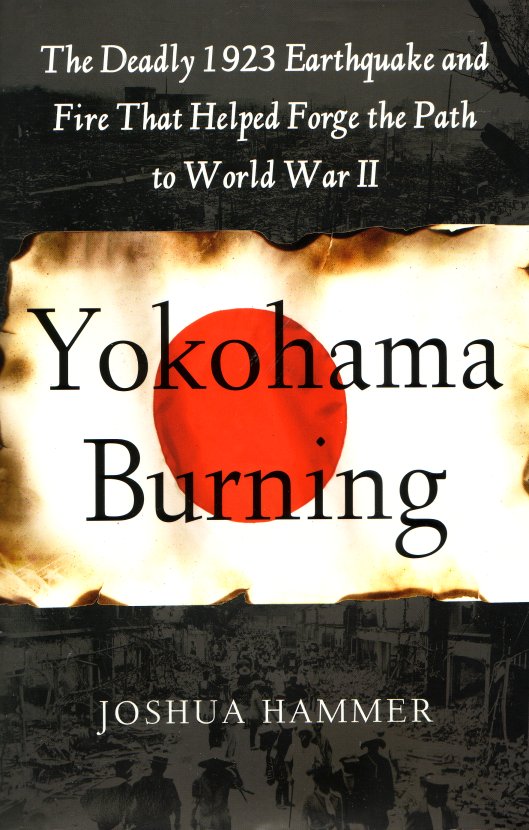
Yokohama Burning

The Deadly 1923 Earthquake and Fire that Helped Forge the Path to World War II.
That's the subtitle of the book, although, at least in my opinion, the book doesn't really have very much relationship to WWII. It's an excellent study of the terrible earthquake and subsequent fires of 1923, but it doesn't really have a lot that ties it in to WWII.
Early on, p. 6, the book talks about previous problems with fires and earthquakes in the area of Yokohama and Tokyo. It then goes into the history of Yokohama, and how it developed into a major city due to the change in Japan's relationship to the world. Japan had been forced to open its borders to U.S. trades goods, and eventually that led to the development of industries making things for sale and trade to other countries.
The book talks about a man, Colonel Earl Hancock Ellis who, in 1922, wrote that he expected Japan to eventually expand and seize the Philippines, Singapore, the Dutch East Industries and other territories in the South Pacific, and to launch a war against the U.S., which is exactly what happened a couple of decades later.
The book goes into great detail about the earthquake itself and the subsequent fires, but also writes about how Koreans were made the target of Japanese hatred and how many of them were killed after the earthquake, rumors of Korean “attacks” planned on Japanese being widespread. “The Japanese viewed the Koreans as taking food out of their mouths” said a Japanese newspaper. Over a hundred Koreans at a time were massacred in various occasions, with hundreds killed on others. The exact number that were killed is unknown, although the book notes it could have been as high as about 8,000.
The book does talk about the Rape of Nanking in 1937, and quotes a Japanese foreign minister, Hirota Koki, who wrote in 1938 after visiting Nanking that “The Japanese Army behaved...in fashion reminiscent [of] Attila [and] his Huns”, and “[Not] less than 300,000 Chinese civilians slaughtered, many cases [in] cold blood.” This is a very interesting quote in that it's from a Japanese person writing about a year after the Rape of Nanking, and verifying that the number killed was in the hundreds of thousands, a number which many historical revisionists in Japan today deny as being far too high.
The book also writes about how the massive U.S. relief effort was greeted with “hostility.” The entire U.S. relief mission was sabotaged by Yokohama officials.
Only in the Epilogue does the book deal with anti-Japanese feelings in the U.S. , especially on the West Coast, and the various anti-Japanese bills that were passed. Martial Law declared in areas of Japan helped the military gain more control over Japanese society, says the book.
Main Index
Japan main page
Japanese-American Internment Camps index page
Japan and World War II index page
|